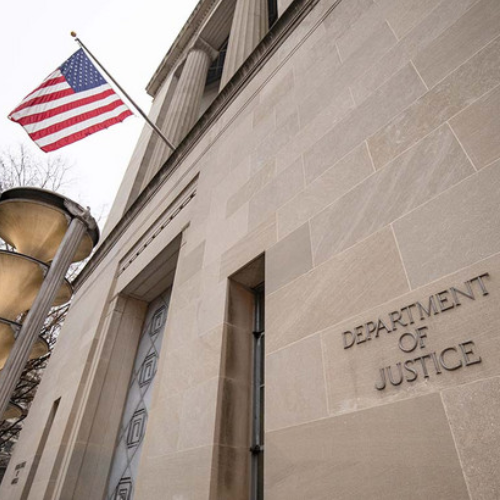The Trump administration has decided to shut down a special task force that was aimed at going after the wealth and influence of Russian oligarchs. This task force, called Task Force KleptoCapture, was created during President Joe Biden’s time in office after Russia’s invasion of Ukraine in 2022. Its goal was to enforce sanctions on Russia and target individuals close to the Russian government, especially wealthy businessmen known as oligarchs.
The Task Force’s Mission and Achievements
Task Force KleptoCapture was designed to make it harder for Russian oligarchs to access and use their wealth. The U.S. government put strong sanctions on these individuals and organizations, making it illegal for them to do business with U.S. companies or have assets in the U.S. This was part of a larger international effort to punish Russia for its actions in Ukraine. The task force was responsible for identifying people who helped break these sanctions or violated export rules.
One of the task force’s biggest jobs was going after yachts, homes, and other luxury items owned by these Russian billionaires. The task force seized expensive yachts owned by two major Russian figures, for example, and even brought charges against well-known oligarchs like Oleg Deripaska. These actions were meant to send a message that the U.S. would hold individuals accountable for supporting Russia’s government.
The International Criminal Court (ICC): Target of Trump’s Harsh Sanctions
Changes in Direction Under the Trump Administration
However, on the first day of Pam Bondi’s appointment as Attorney General, the task force was officially shut down. Bondi, in a memo to the Department of Justice, explained that there would be a shift in priorities. Instead of focusing on Russian oligarchs, resources would now be redirected to go after drug cartels and international gangs. This change in direction represents a big shift in how the U.S. government is using its resources. Instead of trying to hurt the Russian economy and target its rich supporters, the government will now focus on issues like illegal drug trafficking and gangs that operate across national borders.
The decision means that prosecutors who were working on cases related to Russian oligarchs will return to their regular duties. The task force’s cases will not be completely abandoned, but they will no longer be handled by a dedicated group at the Justice Department. Instead, investigations into these individuals will continue, but it will be less focused and less centralized.
A Radical Change in Priorities
The disbanding of Task Force KleptoCapture is seen as a significant change in the U.S. government’s approach. Some believe that this move signals a shift in the U.S. relationship with Russia. It has been reported that the Trump administration has previously spoken about wanting to improve ties with Russia. However, the end of the task force also marks a shift in how the U.S. plans to tackle international issues.
Now, the U.S. government is focusing its attention on combating drug cartels and international criminal organizations. Under the Trump administration, many drug cartels have been labeled as terrorist organizations, and the government has made fighting illegal drug trade a top priority. This includes actions against organizations responsible for fentanyl trafficking, which has become a major issue in the U.S.
Controversial CIA Overhaul: Trump’s Bold Buyout Plan Sparks Internal Turmoil
Re-prioritizing Bribery Investigations
As part of this shift, the Justice Department will also now prioritize bribery investigations related to drug cartels. This includes a law known as the Foreign Corrupt Practices Act, which had previously been used to investigate big companies that violated U.S. anti-bribery laws. Under the new direction, however, this law will now be used to go after bribery linked to international criminal groups, which was not the main focus before.
This change is seen as a big move away from tackling traditional corruption linked to big companies and political figures, and instead focusing on crimes involving drugs and violence. Legal experts say that the Trump administration’s decision may make it harder for the U.S. to continue its aggressive approach toward Russian oligarchs, with fewer cases being brought against them.
The disbanding of Task Force KleptoCapture shows a shift in priorities at the Department of Justice, moving away from sanctions enforcement and focusing on other international crime issues like drug trafficking and violent gangs. Whether this decision will have a major impact on U.S.-Russia relations or the ongoing efforts to address corruption is yet to be seen.


